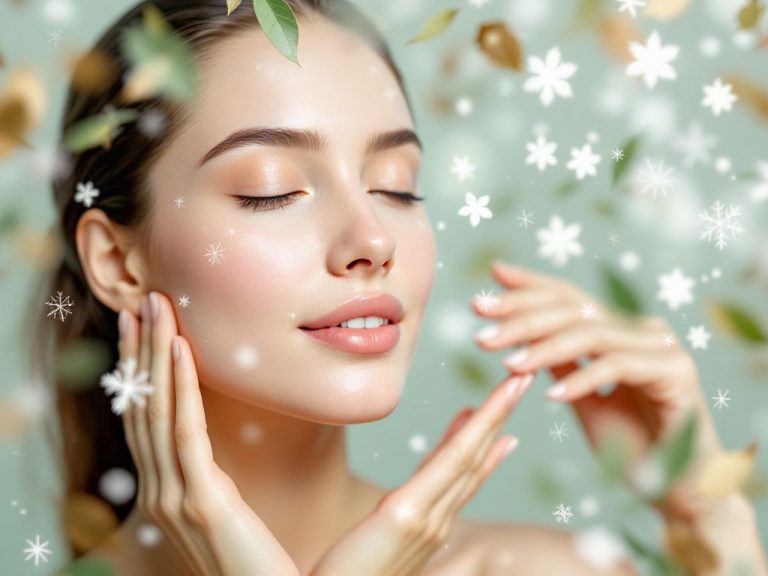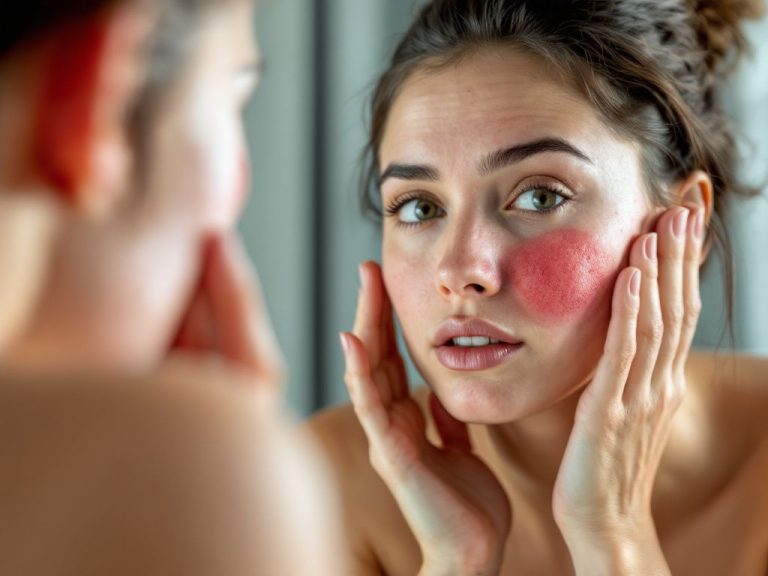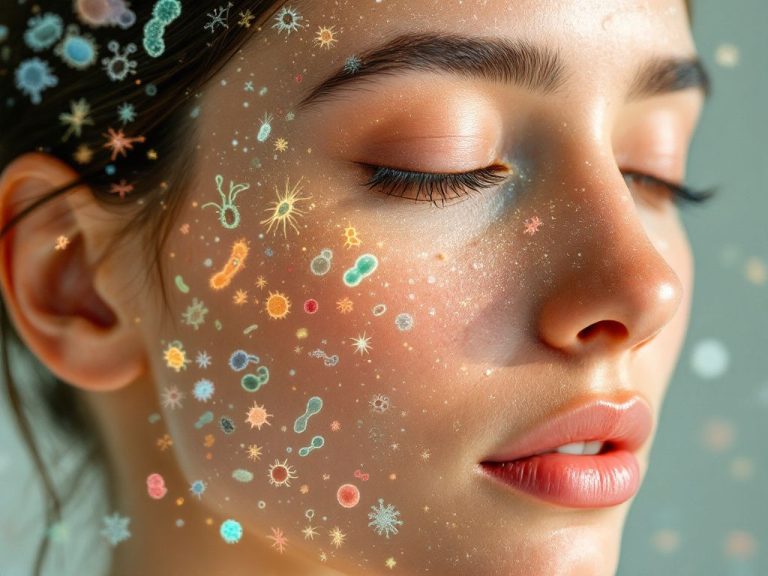Hey there! So, you’ve probably landed here because you’re dealing with that all too familiar teen acne. Trust me, you’re not alone. Those pesky pimples are part of a frustrating rite of passage for most teenagers. Dealing with acne is like your skin throwing a surprise party, but it didn’t send you the invite! Now, let’s chat about why this happens and how you can take charge.
Table of Contents
ToggleWhat Causes Teen Acne?
Acne isn’t just random. It’s caused by a mix of things: hormonal changes (thanks to puberty), stress, diet, and sometimes just plain ol’ genetics. Your skin is oilier than it used to be, and with this, comes blocked pores and, subsequently, acne.
Hormones: The Usual Suspects
During adolescence, your body is working overtime with hormonal changes. These hormones, particularly androgens, spark an increase in oil production, turning your skin into a greasy battleground. Add dead skin cells into the mix, and you’ve got clogged pores, the perfect guest list for a pimple party. It’s not pretty, but there’s a silver lining.
It Runs in the Family
If your parents had acne as teens, you might find yourself in the same boat. Genetics can play a huge role in determining how your skin behaves. Sometimes, it’s as simple as family heritage showing up on your face.
Taking Control of Your Skin

So, acne happens because your skin produces too much oil, dead skins cells are being shed, and maybe even biology is involved. But what steps can you take to reclaim your skin? Roll up your sleeves, because it’s time for some actionable advice.
Creating a Skincare Routine
**1. Cleanser Is Your New Best Friend**
Washing your face twice daily with a gentle cleanser is non-negotiable. Avoid bar soaps, they can dry out your skin, even if your face feels greasy. Look for something mild that suits your skin type, which won’t strip your skin of natural oils it still needs.
**2. Exfoliate—But Not Too Much**
Exfoliating can help bust away those dead skin cells, but overdoing it can put your skin under attack, triggering more oil production. Aim for once or twice a week, with something gentle.
**3. Moisturize—Yes, Even Oily Skin Needs It**
Hydrated skin is happy skin. A lightweight, oil-free moisturizer can help keep your skin balanced.
**4. Be Sparing With Treatments**

Acne treatments with active ingredients like benzoyl peroxide or salicylic acid can be your go-to for spot treatments. Start slowly to see how your skin reacts. Less is more here.
Diet and Acne: What to Eat
Diet isn’t the definitive culprit, but it’s part of the conversation. If you’ve noticed that you break out after inhaling junk food, you might want to reconsider. Focus on whole foods—think fruits, veggies, and lean proteins. Staying hydrated is crucial too.
Stress: Chill Out, Seriously
Easy to say, hard to do, right? Stress can trigger or worsen acne flare-ups. Find a way to manage your stress, be it through exercise, meditation, journaling, or talking it out with friends.
Mistakes Teenagers Often Make
Let’s cut to the chase. We all slip up. But it’s good to know what traps to avoid.
- Squeezing and Picking: A big no-no, unless you enjoy scarring. It makes things worse and it’s hands down one of the most common mistakes.
- Trying Too Many Products: Mixing products can irritate your skin. Stick to a routine long enough to see if it works before switching things up.
- Skipping the Moisturizer: Yes, your skin is oily. That doesn’t mean skip using a moisturizer. Believe me, dehydrated skin compensates by ramping up oil production–a vicious circle.
- Sun Exposure Without Sunscreen: Maybe you’ve heard that the sun dries out acne. But overexposure just leads to skin damage. Always opt for a non-comedogenic, broad-spectrum sunscreen.
Key Takeaways

Alright, so let’s circle back to what we’ve covered here. Teenage acne basics revolve chiefly around oil production, hormones, and sometimes even sweet family genetics playing a part. When you know your enemies, it’s much easier to plan your skincare strategy.
- Cleanse, exfoliate, and moisturize regularly.
- Navigate both your stress levels and your food intakes like a teenager on a mission.
- Understand that mistakes like picking at acne can be tempting but are best avoided.
If you get to take away just one thing today, let it be this: Consistency is key. Stick with the plan, keep it simple, and let yourself see results over time.
When to Seek Professional Help
If you feel like you’re playing it by the book, following a routine, and nothing’s shifting the situation on your chin or your forehead, it might be time to chat with a dermatologist. It’s no admission of defeat. Professionals can offer options you might not have access to otherwise.
Feeling better equipped to handle the rollercoaster that is teenage skin now? Good! Remember, imperfections and all, your skin is yours, and learning to handle acne is just another badge of teenage honor. Keep at it, stay informed, and believe me, you’ve got this!
Frequently Asked Questions
What causes acne in teenagers?
Acne in teenagers is primarily caused by hormonal changes, particularly the increase in androgens such as testosterone. These hormonal changes trigger increased sebum production, which can clog pores and lead to various types of acne breakouts, including whiteheads, blackheads, papules, and pustules[1][3][5).
How should I wash my face to help manage teenage acne?
To manage teenage acne, wash your face twice a day with a gel-based or foaming cleanser that contains salicylic acid or benzoyl peroxide. Avoid harsh soaps and products containing alcohol. Gently massage your face with circular motions and dry it with a clean washcloth. It’s also important to wash your face after exercising or sweating[2][4][5).
What are the key steps in a daily skincare routine for teens with acne-prone skin?
A daily skincare routine for teens with acne-prone skin should include a gentle cleanser, an acne treatment gel or cream (such as benzoyl peroxide), a lightweight moisturizer, and sunscreen for daytime use. This routine helps keep the skin clear and prevents new acne breakouts[1][3][4).
When should I see a dermatologist for teenage acne?
You should see a dermatologist if over-the-counter acne treatments do not show improvement within a month or two, or if you have severe acne with cysts or abscesses. Additionally, if you experience other symptoms such as weight gain, excessive facial hair, or early signs of puberty, consulting a dermatologist is advisable[5]).
References







